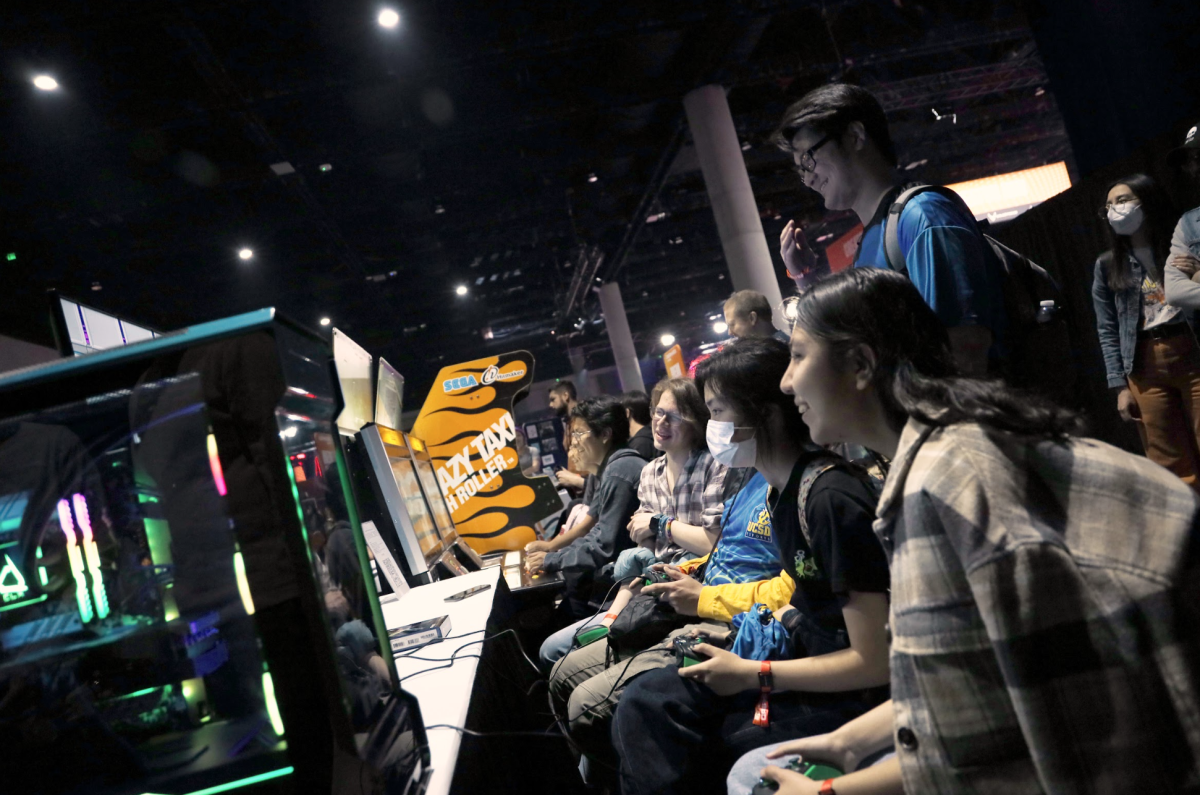It happened nearly a year ago, but I don’t forget things quickly.
Late one night in October, my normally quiet, mild-mannered roommate stumbled into the house fresh from his company’s Halloween party. Drunk as a pig, he was full of brilliantly witty declarations regarding the disposition of the female gender, most of which boiled down to the statement, “”Women are bitches.””
Another of my roommates, ineffably amused, asked him, “”Just how drunk are you?”” at which he burst out, with a grin, “”Drunk enough to think that Jennifer is hot!”” He quickly guffawed and tried to reassure me with a slurred, “”Just kidding.””
I smirked back at him, but things were already working within my mind. I did not know which should have been more offensive: the first statement, or its retraction a moment later.
What I did know was that whichever way his words were taken, he was speaking not just his own point of view but indeed even my own, and that he reflected, to a degree, what others around me are prone to think as well. The difference between the way I feel about my appearance and the way some others do, however, is that I don’t feel any obligation to change anything.
“”Nine out of 10 UC girls are hot, and the tenth goes to UCSD.”” Doubtless many of you, especially the older ones, have heard this self-satisfied sneer at some point or another. I could easily counter it with the presentation of any of my female acquaintances, but I could not exhibit myself as a counter-example.
So sorry, boys — I’m that 10th girl who’s ruining your statistics. However, most of you lads aren’t so hot yourselves, so you may want to think about that the next time you sit down for a laugh at the expense of your female classmates.
After several years of contemplation, I have noticed a couple of things about “”hotness””: First, it’s a sin not to have it, but second, it’s an even greater sin not to want it.
I am content with my lot, so don’t think this is a rant about how bitter I am that I look nothing like Catherine Zeta Jones. Like the mindless masses, I worship at the delicious altar of beauty and pledge my undying zeal without a second thought. However, I wish people would quit trying to make me want that distant, unattainable zenith for myself when I know I am demure enough not to try to be so.
While a person can be perfectly comfortable for failing to meet the criteria that make for “”beauty,”” it makes others uncomfortable as hell when they have to deal with someone who willingly steps outside that fold.
People seem to take a particular delight in trying to play dress-up with those who won’t subscribe to conventional standards of beauty. I can’t tell you how many slumber party friends have asked to do a makeover on me, and how many times I have squeamishly refused.
Finally, though, something gave way during my first year here, and I consented to become a mannequin to my roommates for an evening. I found it uncomfortable but bearable, goaded on as I was by their compliments, and I decided to make small changes in my appearance for a while. I occasionally ditched glasses for contacts, dared to wear my hair down — I enjoy a famous reputation from Walnut Creek to San Diego for always keeping it pulled back — and started shopping for things other than sweatshirts and baggy jeans.
People reacted positively to how I looked. They found it novel and impressive that I would have consented to appear more as a 1990s girl than a late-nineteenth century portrait. When I would revert back to what I considered my normal appearance, they would ask when I was next going to appear in my “”hot”” guise, as some called it. I used to laugh this off with embarrassment, but as the summer after freshman year wore on, I began to feel the first tinges of offense creep into me.
I noticed that I was becoming less comfortable with the style that I had adopted; that I felt it did not encapsulate the side of me with which I was at ease. Dressing up in that manner was more like putting on a mask or a persona, and I felt untrue to myself. I am not one to do things that go against my instinct; I reverted more and more to my normal appearance, with which I was perfectly comfortable and content, though I did keep the wardrobe changes.
And then it started. I had ceased to change my appearance any longer and stayed the same old comfortable me, the one I like the best. But some of my friends began to ask more insistently when I would next be playing dress-up, and would even urge me to come out to certain social functions only if I’d be “”properly attired.””
This had always made me uneasy, but after two years of this badgering, it had begun to make me downright angry. I would dismiss their beleaguering questions absent-mindedly, or laugh sardonically at the mention of my alter ego. Nobody was any the wiser.
I realized that people had taken to the other appearance I created for myself; there was nothing wrong with that, in my book. What was infuriating was that I considered it a fake incarnation of myself, and many people seemed to prefer the fake persona to my real one, the one with which I was happy. This vexed me considerably.
It doesn’t bother me to walk by the Bebe store and see an enormous poster of a model whose sandal strap I am not worthy to untie. It is bothersome, however, to imagine the indignation of those who stand behind me, condemning me just because I don’t want to try in vain to make myself look like that same model.
Before my sophomore year, I stopped scrambling for the unattainable and realized that I was most content with what I had been given. Some of those around me are not, however, and I’ll still get the occasional request to be my “”other self.””
I got over my perpetual irritation with others’ pointless pleading when I realized that I was comfortable with my appearance, no matter what others might have thought of it. Indeed, I came to realize that their nagging actually reflected more on their discomfort with my own desire not to conform than on any objective notion that I could actually be good-looking.
Hotness is delicious — on the people for whom it was intended. But most can’t get it through their heads that not everybody can be hot or want to be. This comes as a shock to many people, since hotness is certainly one of the more lauded and thirsted-after values of our society. I’m not a mover and shaker, though; I stay within the comfortable boundaries of my locative realm.
Not to want to be hot, and to be truly satisfied with that state, seems to be too much for some. Even if you come to accept yourself, it’s funny to realize that there are still going to be a lot of people who won’t accept you, particularly if you go against the grain.







